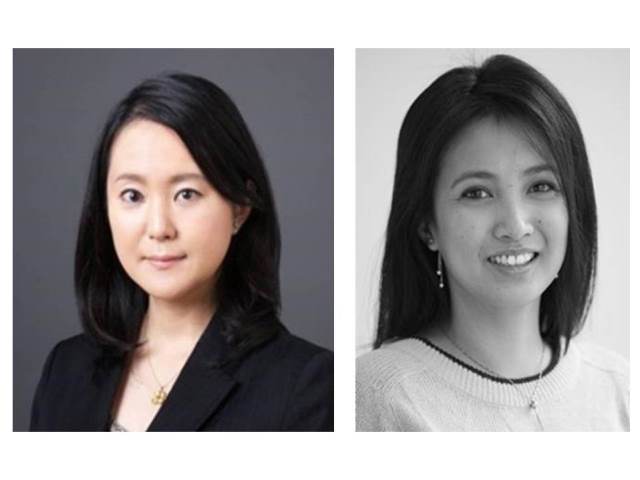Some participants found positive and encouraging signs while others remained skeptical about the possibility for South Sudan’s President Salva Kiir and his major adversary, the former vice-president and opposition leader Riek Machar and other tribal leaders to translate the agreement reached in September 2018 into the formation of a stable government. A summary report of discussion will follow.
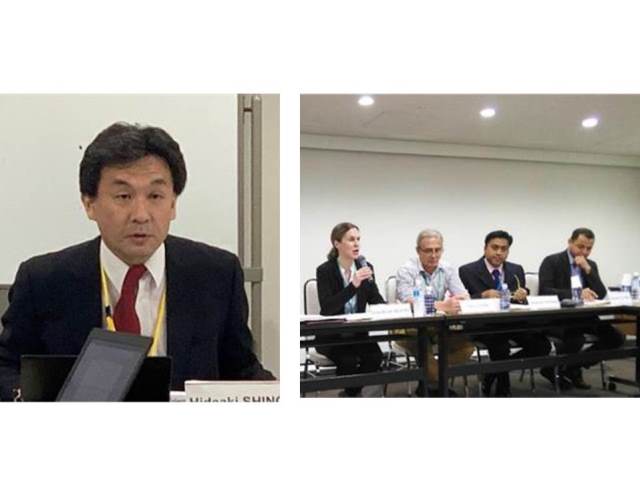
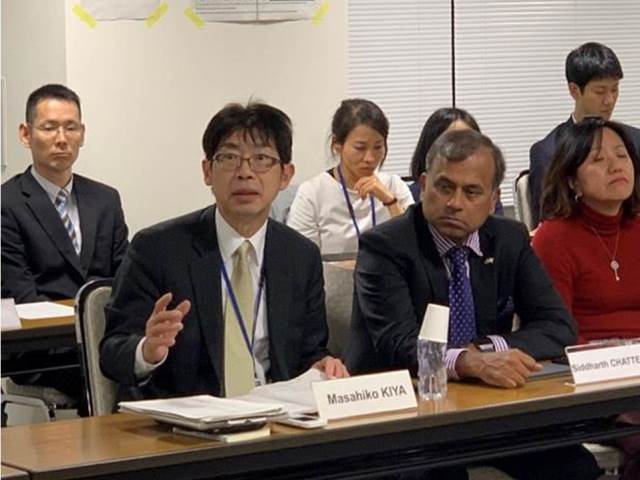
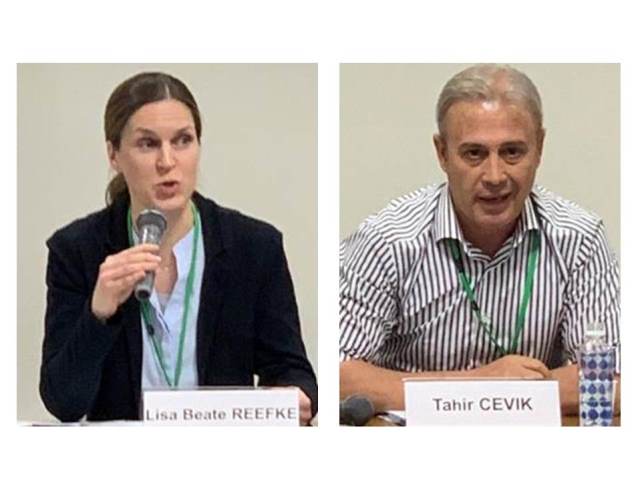
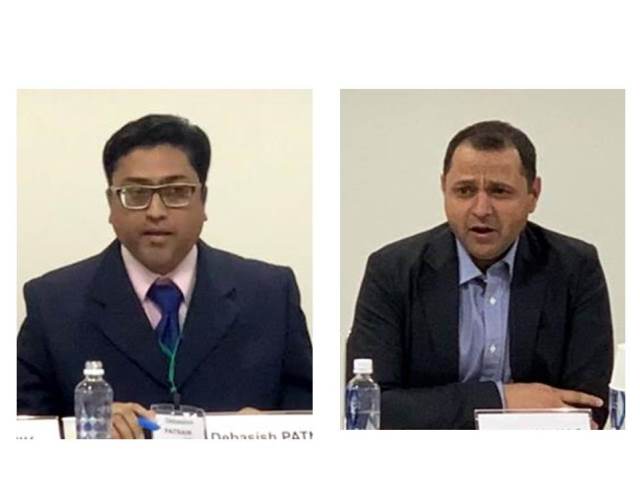
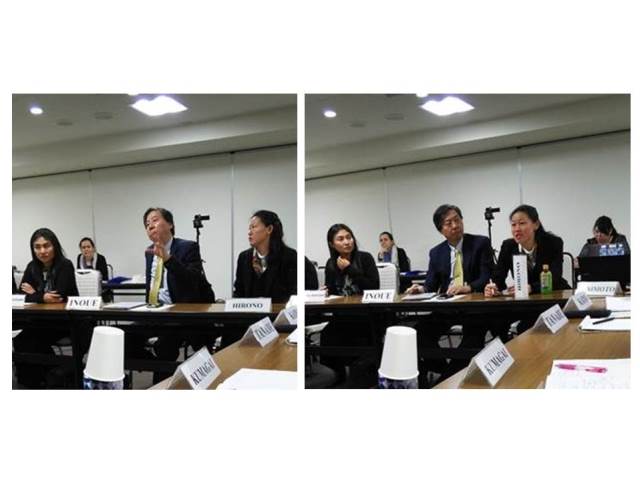
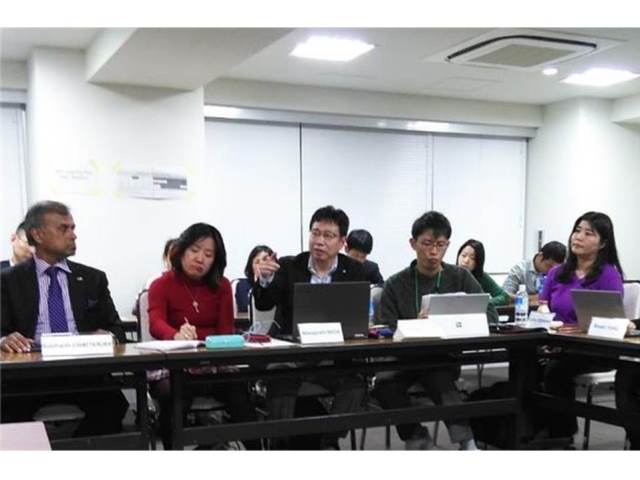
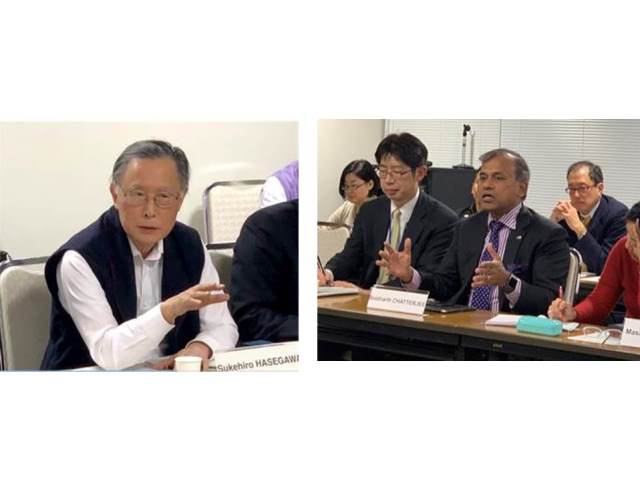
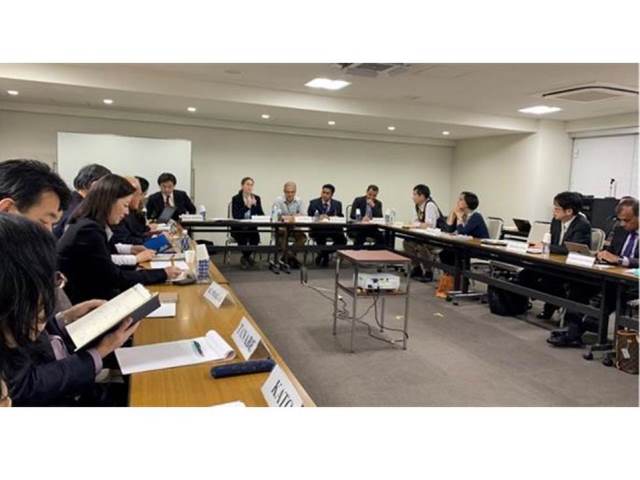
Hideaki Shinoda, Director, HPC
Lisa Reefke, Senior Political Affairs Officer, UNMISS
Tahir Cevik, Civil Affairs Officers, UNMISS
Debasish Patnaik, Geospatial Information Officer, UNMISS
Naveed Ul Haq, Peace & Community Cohesion Officer, UNDP (Bentiu, South Sudan)
Masahiko Kiya
Deputy Assistant Minister, African Affairs Department, Ministry of Foreign Affairs of Japan and Former Ambassador of Japan to the Republic of South Sudan
Sukehiro Hasegawa, President, GPAJ
Professor Sukehiro Hasegawa, President of GPAJ, opened this joint review meeting by explaining how GPAJ and HPC had agreed to organize this meeting and noted the objective of this meeting to send a message to the international community that Japan continued to be interested in South Sudan and held its views on the prospect of peace in South Sudan.
The moderator, Professor Hideaki Shinoda, Director of HPC, added that this meeting constituted a part of the mid-career course for the Global Peacebuilders Program commissioned by the Ministry of Foreign Affairs, for which HPC has been serving as the implementing body since 2007.
The panelists presented their understandings and views on the progress and prospects of peace considering the September 2018 peace agreement (the process completion targeted for 2022).
Ms. Lisa Reefke, Senior Political Affairs Officer of the United Nations Mission in South Sudan (UNMISS), gave an overview of the political trends and priorities in South Sudan. Since the signing of the peace agreement, the security situation has considerably improved, although tensions persist and sporadic ceasefire violations continue to occur in parts of the country, including by non-signatories to the peace agreement. While overall progress in implementation of pre-transitional tasks has been limited thus far, the proactive engagement of national and subnational leaders and the continued support by regional actors and international partners have provided positive momentum. UNMISS aims at assisting in the establishment of a stable foundation for the actual implementation of tasks mandated by the peace agreement, with the longer-term objective of facilitating the development of a permanent constitution and the conduct of fair and credible elections leading to the formation of a stable government. She mentioned five immediate priorities for UNMISS support, which included transitional security arrangements, the number and boundaries of states, the development of constitutional and legal frameworks, the broadening of political space, and electoral considerations.
Mr. Tahir Cevik, team leader for Civil Affairs Office of UNMISS, provided updates of UNMISS initiatives at the subnational level, specifically on addressing cattle-related conflicts and reinvigorating traditional structures of conflict resolution. To see progress in the three priority areas of conflict management, social cohesion, and reconciliation, he noted that the Civil Affairs Office was working closely with all relevant stakeholders to address local conflicts, forge unity through inclusion, and promote reconciliation.
Mr. Debasish Patnaik, geospatial information officer for UNMISS, highlighted that the new peace agreement presented an opportunity to create peace in South Sudan given that the last four months had made considerable progress. He enumerated the critical benchmarks for implementation of pre-transitional tasks: an agreement on the security sector and the establishment of transitional security arrangements, the appointment of a new chair of the Joint Monitoring and Evaluation Commission (JMEC) to support pre-transitional discussions and start preparations for the transition, and the need for a continued active role of the Intergovernmental Authority on Development (IGAD) and the African Union, with the UN remaining committed to assist their efforts.
Mr. Naveed ul Haq, Peace & Community Cohesion Officer, from UNDP in South Sudan, shed light on the importance of Unity State as economic life of the country and its potential to forge nexus of leadership seen through political developments in the area. He pointed out how the peace agreement could present opportunities for UNMISS and partners to enhance their role in resolving issues related to resource management, security sector reforms, and disarmament, demobilization, and reintegration (DDR). He also reminded to see the challenges posed due to gender-based violence (GBV) issues in the country and Unity State.
Ambassador Masahiko Kiya, Deputy Assistant Minister of African Affairs Department of MOFA and former Ambassador of Japan to South Sudan, made comments on the presentations and shared his views on peace initiatives in the country. First, an optimistic and patient attitude was essential in achieving peace. Second, raising questions should be coupled with presenting solutions if you really want to make a difference. Third, it was crucial for the incumbent leaders to have a flexible and accommodating mindset. Fourth, continued dialogue was better than one-sided solutions. Fifth, security and macro-economic stability constituted critical foundations of peace. Sixth, it was imperative not to lose sight of the potential of local leaders in peacebuilding because local peacebuilding ultimately promotes resilience and self-reliance. Finally, Ambassador Kiya emphasized the need to strengthen international cooperation, especially between the Government of South Sudan and international community, in particular the United States.
* The questions and views expressed by participants are kept anonymous in this summary record of the meeting. Several participants made comments and raised questions. The following is a summary of the main points made by the participants and responses from the panelists and a thrust of discussions.
Question 1: What is the focus on security measures that are currently being implemented?
Security arrangements are placed as a critical priority, and it is exemplified to the extent that there is no revitalization of government, unless security measures are implemented. Accordingly, security is essential for the formation of the new government. However, at present, the level of security has not been achieved as desired. As a part of the security sector reform, one local level initiative is introduced as a model, with a view to replicating this initiative to other regions, if succeeded. However, the funding is problematic, although the Peacebuilding Fund contributed to the program through “partnership for resilience and recovery.” Security problems need to be assessed hand in hand with South Sudan’s reality that there is no substantial economy, where the only available source for livelihood is cattle, which is subjected to on-going disputes and seizures between the tribal groups.
Question 2: What is the role of gender and what level of women’s participation exists in the process?
The engagement of women has increased at all levels, including in the parliament, the government, the Steering Committee and the civil society. South Sudan is sought to operationalize women leaders’ representation at 30% in the government, and a number of capacity building programs have been implemented for women. Also, there has been a high participation level of women in leading NGOs.
Question 3: How the groups that did not sign the Peace Agreement are regarded?
With respect to the non-signatory groups to the Peace Agreement, there has been an outreach activity through, for example, IGAD, with a view to engaging them into the peace process in the future.
Question 4: How UNMISS promotes dialogues between the grass-root level and the leaders?
Not only through UNMISS, but also various collaborative frameworks in the efforts of different U.N. agencies have established programs and opportunities in addressing grass-root level issues, with a view to substantiate solutions at the grass-root level.
Question 5: What are the main reasons to be optimistic about the Peace Agreement?
The Peace Agreement has effectively provided compromises and formulated a consensus to the peace process. The Peace Agreement is crucial for keeping the momentum for further progresses. “The panelists also highlighted regional engagement, in particular, the contributions made by IGAD to the peace agreement.”
Question 6: How effectively the sanctions operated in relation to the peace process in South Sudan?
Sanctions under travel ban and asset freeze did not have much impact on the peace process, because there were not many people who would have desired to travel to outside South Sudan or there were not many assets to be transferred to outside South Sudan. However, the arms embargo ironically impacted the Peace Agreement in a manner that incentivized the government to make compromises, because the government, due to the arms embargo, had been disadvantaged in defending the borders.
Question 7: To what extent the international engagement is necessary to further progress in South Sudan? Also, how China is positioned in the relationship with South Sudan for the progress?
International community is already highly active in South Sudan. China has the largest embassy in South Sudan, and President Salva Kiir has recently visited China and executed a number of memorandum, including those concerning oil exploration, infrastructure development assistance and collaboration between the ruling party and the Communist Party.
Question 8: How the nexus/commonalities between SDGs and peacebuilding is being handled under the UNMISS initiatives?
The Peace Observation Commission has applied a two-tier approach with respect to the political engagement for bringing social cohesion at the local communities as the first tier, and the protection of civilians as the second tier. The third tier relates to an object to return internal displaced persons to the communities. UNMISS is under a reform to enable itself to continue serving a major component for endurable peace and sustainable development. UNMISS is mandated to bring a cohesive and holistic operation to provide both of SDGs and peacebuilding oriented initiatives.
Question 9: To what extent an ethnic conflict between the dominant tribes have been addressed?
International community missed out on grass-roots engagements, taking into account that elders at the community level are at the core of dispute resolution within the community and between communities, for examples, even in relation to wars on the economy. It is necessary to develop proactive engagement at the grass-root level and combine the peace making process with the grass-root society. It is necessary to facilitate efforts in bring people together.
Question 10: How does the UN restructuring of the peace and security architecture affect activities of UNMISS?”
The implications of this UN Reform are unascertainable, but the Peacebuidling Commission allocated a fund of 3 million USD through the Peacebuilding Fund for a period of three-year years among UN agencies, and UNMISS will continue to engage in political building through Peace Desk and remains to serve the same role as the interlocutor. The military role and military component of UNMISS are to be reassessed, subject to the review for UNMISS mandate that is coming up in March 2019, considering that the role of UNMISS in humanitarian assistance is definitely valid. Arguably, there is a need for a regional protective force, which has been previously raised, but how the UN Security Council’s debate ultimately playa out is unknown at this stage.
Professor Hasegawa first sought further insights into Ambassador Kiya`s views with respect to the necessity for US’s involvement in the process for South Sudan, and then concluded this joint review meeting as follows.
While some presenters and participants made positive and realistic assessment of the peace process carried out so far, there definitely remained challenges to be tackled, for example in establishing the constitutional framework as well as building the electoral base. Expressing his agreement with Ambassador Kiya, Professor Hasegawa expressed his views that the time pressure should not be excessively weighted as it would cause the peace process to collapse entirely.
Secondly, the prospect for peace needed to be evaluated based on how the stability could be realized in a few years on power sharing arrangements, and how the consensus could be reached regarding an integrated army. It was important to recognize the need for resolving problems among power holders and opposition parties at the national level but also among tribal leaders in their disputes over such issues as land and water for farming and livestock. Finally, Professor Hasegawa commented that the role of women should be enhanced in the peace process and should not be undermined, by referring to an example in the Japanese history with respect to the power struggle that led to the Meiji Restoration 150 years ago without total destruction of Edo as Tokyo was then called when the wife of the last Tokugawa Shogun played a key role in preventing a potential bloodshed by abandoning the Edo castle to the new government.
The meeting was started at 6:30 pm and closed at 8:15 pm.
January 14, 2019
